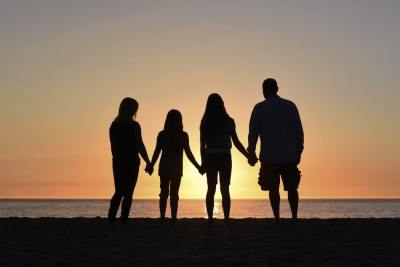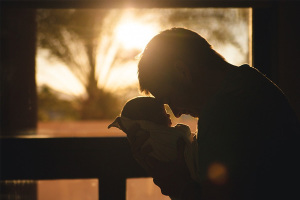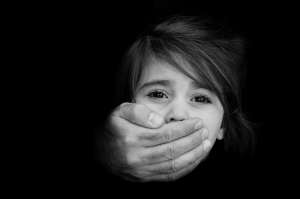Parents, don’t be afraid to let your kids experience suffering
From “It’s Not Too Late: The Essential Part You Play in Shaping Your Teen’s Faith”

Whatever distaste we may have personally for suffering and trials, as parents, our desire to see our kids avoid pain is exponentially larger. I have a fear of heights, but I didn’t know what fear really was until I saw our playful, derring-do, fifteen-year-old sons get close to the edge of a two-hundred-foot drop on a trip through the Rocky Mountains.
If we consider objectively what causes human beings to develop courage, patience, empathy, or most any other virtue, it’s hard to avoid the obvious: men and women grow the most through adversity.
And yet we don’t readily see this with our kids, precisely because of our role as their protectors. Keeping our children safe is a good, God-ordained parental responsibility, but it can become more than that, particularly in our day. Parents, many whose lives are testimonies to “whatever doesn’t kill you makes you stronger,” will go to extremes to keep their kids from life’s bumps and bruises.
It’s natural to want our kids to do better than we did and to have what we didn’t have, but is that always such a good thing? Our culture says in a thousand ways, “Yes!” But this encourages us and our kids to be consumers and accumulators—that is, people who judge the quality of life by possessions and comfort, without recognizing how suffering can aid in their spiritual growth as young adults.
Don’t overprotect. There is an unseen cost of overprotecting our kids, of solving their problems for them, even when they are at an age when they are able to do so themselves. We take away the opportunity for their dignity to grow through suffering.
When I conducted my focus groups with parents, I noticed an interesting pattern. Parents whose children were thriving the most in college and beyond had allowed their kids some bumps and bruises during high school. They had given them “rope” to create and solve some of their own problems.
Talk about suffering, trials, and consequences. I recently heard a professor trace the glorious presence of God from the Old Testament to the New Testament. Where is the glory of God most evident in the Bible and the life of the church? When we are fragile and cracked, because “we have this treasure [God’s light] in jars of clay to show that this all-surpassing power is from God and not from us” (2 Cor. 4:7).
From early on we have the opportunity to talk with our kids about how God can and will use trials. Find a way to talk about the hard side of life with your kids. Give them some Scripture and maybe a story or two that illustrate the distinctly Christian point of view on the topic.
Don’t pretend. Years ago Huey Lewis had a song with the lyric, “Sometimes, bad is bad.” Though he meant something a bit different, the concept pertains to life’s difficulties. Ignoring pain or stoically adopting a “no regrets” policy may seem like a good idea in the short run, but that pain will find a way to express itself in surprising and unwelcome ways. Let your kids see you walk through the hard places with grace, but also with honesty.
Ask for help. There is a difference between a healthy journey into suffering and clinical depression. If your child is so blue that he or she can’t get out of bed, is cutting, not eating, abusing alcohol or drugs, acting out sexually, flying into rages, or manifesting behavior that could hurt him or herself or others, get a recommendation for a Christian counselor and make an appointment.
Have the cause-doesn’t-equal-effect conversation. Religious people have a tendency to assume a hurting person did something to earn his or her misery. A risk of growing up in the church is that your kids will catch a “they must have had it coming” attitude toward the suffering of others. Look for an opportunity to speak to the “Why?” of human suffering—help your kids learn not to assume the worst of others or themselves.
Have the cause-does-equal-effect conversation. Some of the suffering our kids will experience, of course, will be the result of their own impulsive or wayward actions. It’s our job to help them distinguish between what is not their fault (death of a friend, failing when they try hard) and what is a natural outcome of their poor choices.
Dan Dupee is the former Chairman of the Board for the Coalition for Christian Outreach, a Pittsburgh-based campus ministry working annually with over 32,000 students on over 115 campuses. He brings together biblical truth, sociological research, college transition findings, and focus group work with parents of adolescents to develop principles that are fresh, clarifying additions to a growing body of research on teen faith development. Dan and his wife, Carol, are the parents of four children. They live in the northern suburbs of Pittsburgh, Pennsylvania. More information about his book “It’s Not Too Late” can be found online here.



























